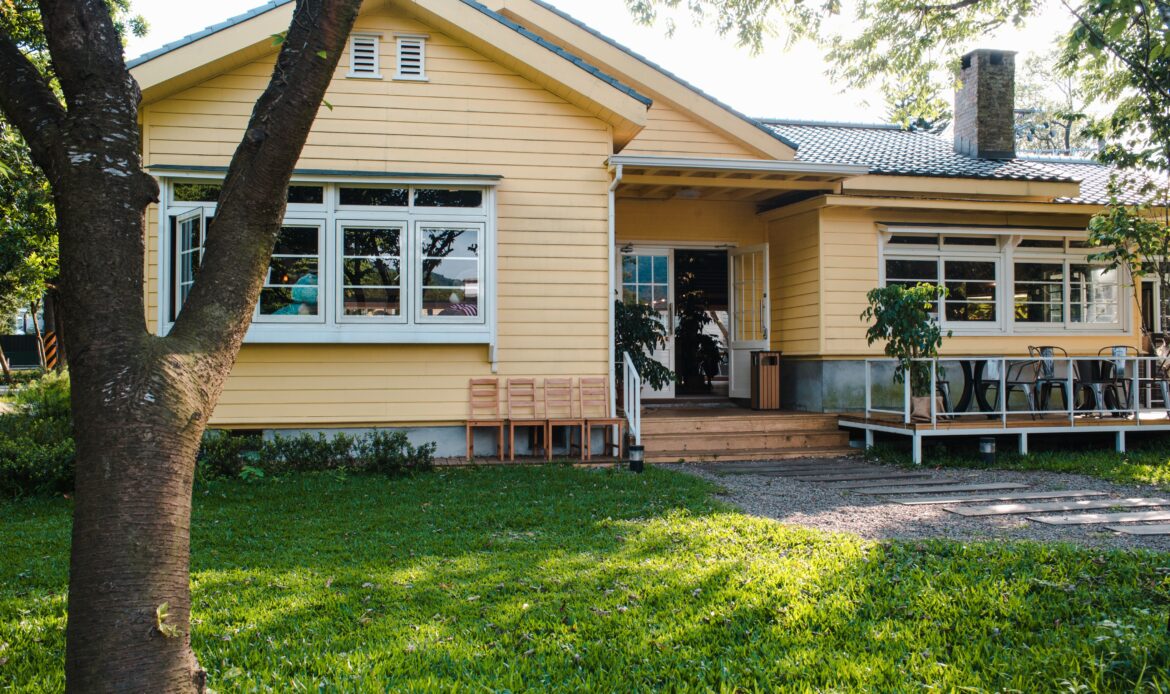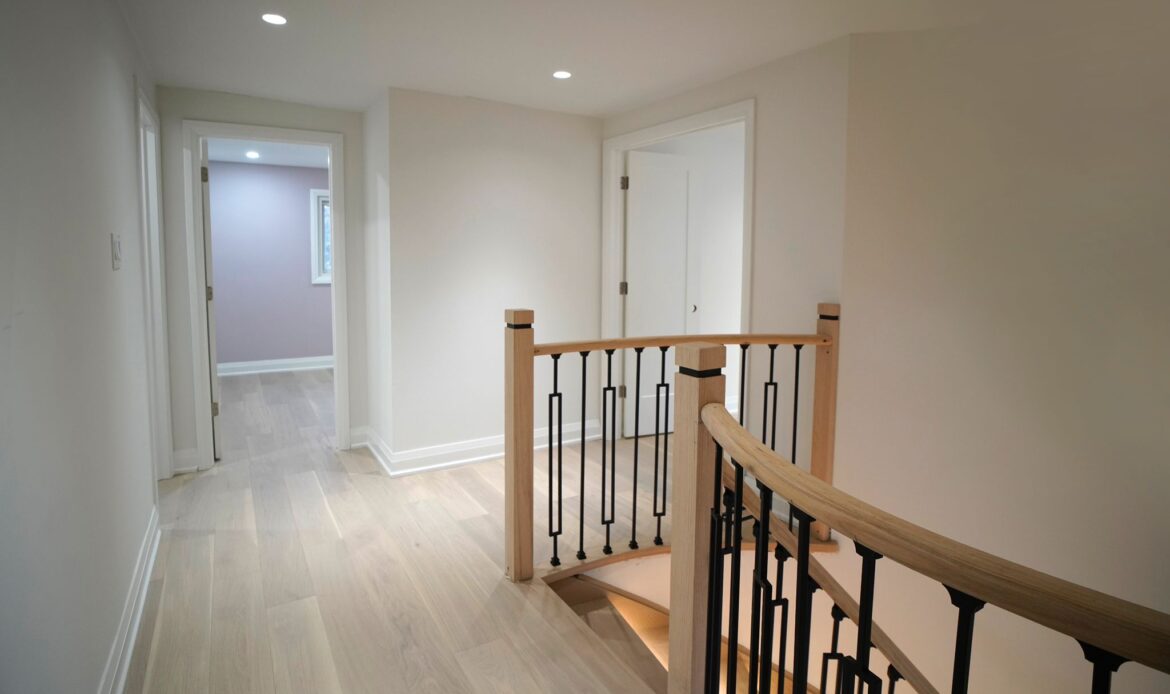Home renovations can be exciting, but for many Toronto homeowners, they often come with unexpected delays. From permit issues to contractor scheduling conflicts, these setbacks can stretch your project timeline and increase stress. Understanding how to avoid home renovation delays in Toronto is key to keeping your project on track, saving both time and money.
In this guide, we’ll share practical tips and expert strategies to help you plan your renovation effectively. Whether you’re updating a single room or doing a full home remodel, these insights will help you stay organized, manage contractors, and handle potential roadblocks with confidence—so your Toronto home renovation can finish smoothly and on schedule.
Table of Contents
Understanding Common Causes of Renovation Delays in Toronto
Renovation delays are a common frustration for Toronto homeowners, but knowing the typical causes can help you plan ahead and avoid unnecessary setbacks. Understanding these issues is the first step toward keeping your project on schedule and minimizing stress.

1. Permit and Regulatory Delays
Toronto has strict building codes and permit requirements. Failing to secure the right permits or misunderstandings with zoning regulations can stall your renovation. Homeowners often underestimate the time required for approvals, which can add weeks or even months to a project. Working with a professional who knows the local regulations can prevent these costly delays.
2. Contractor Scheduling Conflicts
Experienced contractors in Toronto are in high demand, especially during peak renovation seasons. Delays can occur if your preferred contractor is unavailable or if multiple tradespeople are not properly coordinated. Poor scheduling often leads to idle time between tasks, slowing down the overall progress of your project.
3. Material Shortages or Delivery Delays
Supply chain issues can impact the availability of building materials, fixtures, and finishes. Items like custom cabinetry, specialty tiles, or appliances may take longer to arrive than expected, causing work to pause until they’re on site. Planning ahead and ordering materials early can help mitigate these risks.
4. Unforeseen Structural or Property Issues
Older Toronto homes may hide issues like water damage, outdated wiring, or weak foundations. Discovering these problems mid-renovation can disrupt your timeline and increase costs. Conducting a thorough inspection before starting the project is essential to reduce surprises.
5. Changes in Project Scope
Frequent design changes or adding extra features during the renovation can significantly slow down progress. While upgrades and adjustments are common, they need careful planning and clear communication with your contractor to avoid unnecessary delays.
By identifying these common causes of renovation delays in Toronto, homeowners can take proactive steps to prevent them. Planning carefully, coordinating with skilled professionals, and anticipating potential challenges will keep your home renovation on track and ensure a smoother, more predictable timeline.
Proactive Planning to Prevent Delays
When it comes to home renovations in Toronto, proactive planning is the key to avoiding delays and ensuring a smooth, stress-free experience. By anticipating challenges and preparing in advance, homeowners can minimize downtime, reduce unexpected costs, and complete their projects on schedule.
1. Develop a Detailed Renovation Plan
Start by creating a comprehensive plan that outlines every aspect of your renovation. Include the scope of work, specific design choices, materials needed, and desired timeline. Clearly defining each step will help you and your contractor stay on the same page, reducing the risk of confusion or last-minute changes that often lead to delays.
2. Secure Permits Early
Building permits are a major factor in Toronto renovation timelines. Apply for all necessary permits well before construction begins. Understanding the city’s zoning laws, building codes, and inspection requirements will help prevent permit-related delays. Hiring a professional renovation company familiar with Toronto’s regulations can streamline this process and ensure compliance.
3. Coordinate with Contractors and Tradespeople
Scheduling conflicts among contractors are a common source of delays. To prevent this, coordinate timelines with all involved tradespeople, from electricians and plumbers to carpenters and painters. Ensure there is a clear sequence of work and build in buffer time for overlapping tasks. Open communication between all parties is critical to keeping the project on track.
4. Order Materials in Advance
Material shortages can halt a renovation project unexpectedly. To avoid this, source and order all necessary materials, fixtures, and finishes ahead of time. Factor in potential delivery delays, especially for custom or imported items. Keeping a backup plan for substitutions can also prevent downtime if a product becomes unavailable.
5. Conduct a Thorough Pre-Renovation Inspection
Hidden issues in your home, such as water damage, outdated wiring, or structural weaknesses, can cause significant delays. Conducting a thorough inspection before work begins allows you to address potential problems in advance. This proactive approach helps prevent surprises that could disrupt the renovation schedule.
6. Set a Realistic Timeline with Built-In Buffers
While it’s natural to want a fast renovation, setting an unrealistic schedule increases the risk of delays. Build buffer periods into your timeline for unforeseen circumstances like weather, supply chain issues, or minor changes. A well-planned schedule reduces stress and allows for smoother project management.
7. Maintain Clear Communication Throughout the Project
Regular updates and open communication with your contractor help catch potential issues early. Discuss progress, concerns, and upcoming tasks frequently. This transparency ensures that adjustments can be made promptly, preventing small problems from escalating into major delays.
By implementing proactive planning strategies, Toronto homeowners can significantly reduce the risk of renovation delays. From securing permits early to coordinating trades and pre-ordering materials, each step contributes to a more efficient, predictable, and successful home renovation experience. Thoughtful preparation not only saves time but also ensures a smoother, more enjoyable transformation of your living space.
Navigating the Permit Process in Toronto
One of the most common causes of renovation delays in Toronto is issues with the permit process. Understanding how to navigate building permits effectively is essential for homeowners who want a smooth and timely renovation. By following the proper steps and working with experienced professionals, you can prevent unnecessary setbacks and ensure your project complies with local regulations.
1. Understand When Permits Are Required
In Toronto, certain renovations and home improvement projects require permits. These typically include structural changes, additions, electrical work, plumbing modifications, and major interior renovations. Even projects like finishing a basement or building a deck often require city approval. Familiarize yourself with Toronto’s permit requirements early to avoid fines or having to undo completed work.

2. Prepare Complete Documentation
A complete permit application is crucial for quick approval. This generally includes detailed floor plans, specifications, and construction drawings. Your contractor or architect can help create accurate documentation that meets the city’s standards. Submitting incomplete or incorrect documents is a common reason permits are delayed, so thorough preparation is key.
3. Submit Applications Through the Right Channels
Toronto’s Building Division handles permit applications, which can often be submitted online or in person. Ensure you submit all forms and fees correctly. Online submission portals provide status updates and notifications about any issues, making it easier to track your application. Keeping a copy of every submission can help resolve any future discrepancies.
4. Allow Time for Review and Inspections
Once submitted, permit applications undergo a city review. This includes checking compliance with building codes, zoning bylaws, and safety regulations. Depending on the complexity of your project, this process can take several weeks. Planning your renovation timeline to accommodate this review period prevents unnecessary delays. Additionally, be prepared for inspections during and after construction to confirm compliance.
5. Work With a Knowledgeable Renovation Team
Professional renovation companies in Toronto are familiar with the city’s permit requirements. Working with experts like Ahoora Homes can save time and reduce the risk of mistakes. Experienced contractors can guide you through which permits are needed, prepare documentation, and communicate with city officials on your behalf, ensuring the process moves smoothly.
6. Handle Changes and Revisions Promptly
Sometimes the city may request revisions to your permit application. Addressing these requests quickly helps maintain your project schedule. Keep open communication with your contractor and city representatives to ensure any changes are implemented accurately and approved without unnecessary delays.
7. Understand the Costs and Fees
Permit fees vary depending on the scope of work and type of renovation. Include these costs in your project budget from the start. Being financially prepared ensures that fees do not cause hold-ups in the approval process.
By understanding Toronto’s building permit process and preparing carefully, homeowners can significantly reduce delays in their renovation projects. Early research, accurate documentation, and working with experienced professionals make navigating permits straightforward and stress-free. Properly managing permits not only keeps your renovation on schedule but also ensures your home meets all safety and regulatory standards, giving you peace of mind throughout the project.
Utilizing Technology for Project Management
In today’s fast-paced renovation industry, using technology effectively can make a huge difference in keeping your home renovation project on schedule. For Toronto homeowners, leveraging project management tools ensures that timelines, budgets, and communication are streamlined, reducing delays and misunderstandings.
1. Digital Project Management Platforms
Platforms like Trello, Asana, and Buildertrend are designed to help renovation teams and homeowners organize tasks, set deadlines, and track progress. These tools allow you to see what stage your project is at in real time, which tasks are pending, and which have been completed. By centralizing project information, everyone—from contractors to subcontractors—stays on the same page, preventing miscommunication that often leads to delays.
2. Real-Time Communication Tools
Effective communication is critical for preventing renovation delays. Messaging apps such as Slack, Microsoft Teams, or WhatsApp allow instant updates, photo sharing, and quick approvals for decisions on materials or design changes. For homeowners, this means you can address issues immediately instead of waiting for in-person meetings, keeping the project moving smoothly.
3. Scheduling and Timeline Software
Renovation projects involve multiple tradespeople and suppliers, making scheduling one of the biggest challenges. Software like Microsoft Project or CoConstruct enables your renovation team to map out timelines for each phase of the project, allocate resources efficiently, and adjust schedules in case of unforeseen changes. This ensures that dependencies—like plumbing before drywall—are respected, preventing costly setbacks.
4. Budget Tracking Tools
Staying on budget is as important as staying on schedule. Many project management tools come with built-in budgeting features that track expenses in real time, highlight overspending, and allow for adjustments before costs spiral out of control. Homeowners can see where money is being allocated and ensure that funds are available for key milestones.
5. Document and Permit Management
Technology can also simplify the management of essential documents, permits, and contracts. Cloud-based storage solutions like Google Drive or Dropbox allow contractors and homeowners to access floor plans, permit approvals, and supplier invoices anytime. Quick access to documents ensures that questions about permits or specifications are answered promptly, avoiding unnecessary delays.
6. Virtual Inspections and Progress Tracking
Some renovation companies in Toronto now use drones or video calls to monitor construction progress, especially when inspections or approvals are needed. This technology allows homeowners to review progress remotely, verify work quality, and make decisions without waiting for on-site visits. It’s particularly useful during inclement weather or busy schedules.
7. Benefits of Technology Integration
By integrating technology into project management, homeowners gain greater transparency, control, and efficiency. It minimizes miscommunication, reduces the risk of errors, and helps ensure that timelines are adhered to. For contractors, it streamlines operations, improves accountability, and enhances client satisfaction.
Incorporating project management technology into your Toronto home renovation is no longer optional—it’s a necessity for avoiding delays and ensuring a smooth process. From scheduling and budgeting to communication and document management, these tools empower both homeowners and contractors to stay organized and proactive. Ultimately, leveraging technology helps your renovation project stay on track, within budget, and completed to the highest standard.
Conclusion
Avoiding delays in your home renovation project in Toronto requires careful planning, proactive communication, and strategic use of technology. Understanding common causes of renovation delays, navigating permits efficiently, and utilizing project management tools can make the process smoother and more predictable. Partnering with experienced professionals ensures that your renovation stays on schedule and within budget while maintaining high-quality results. By taking these steps, homeowners can enjoy a stress-free renovation experience, reduce unexpected costs, and achieve the dream home they envision. Remember, proper planning, clear communication, and timely decision-making are key to avoiding renovation delays and ensuring a successful project in Toronto’s competitive renovation landscape.
FAQs
-
How long does it usually take to complete a home renovation in Toronto?
The duration of a home renovation depends on the scope of the project, permit requirements, and contractor availability. Simple upgrades may take a few weeks, while full-home renovations can take several months. Planning ahead and working with a professional team can help minimize unexpected delays.
-
Do I always need a building permit for my renovation project in Toronto?
Not all renovations require permits. Structural changes, additions, or major electrical and plumbing work usually need permits, while cosmetic upgrades like painting or flooring may not. Consulting with a professional renovator can ensure you comply with Toronto’s regulations.
-
What are the most common causes of renovation delays in Toronto?
Delays often occur due to permit approvals, late material deliveries, unexpected structural issues, or poor communication between homeowners and contractors. Proactive planning, clear scheduling, and technology tools can help avoid these common setbacks.
-
How can technology help prevent renovation delays?
Project management platforms, real-time communication apps, and digital scheduling tools allow homeowners and contractors to track progress, coordinate tasks, and address issues immediately. Technology ensures transparency and accountability, helping projects stay on schedule and within budget.
-
Why is hiring a professional contractor important for avoiding delays?
Experienced contractors understand the local permit process, have reliable supplier networks, and can anticipate potential issues before they become major problems. Their expertise helps streamline workflows, maintain timelines, and ensures high-quality results for your renovation project.

